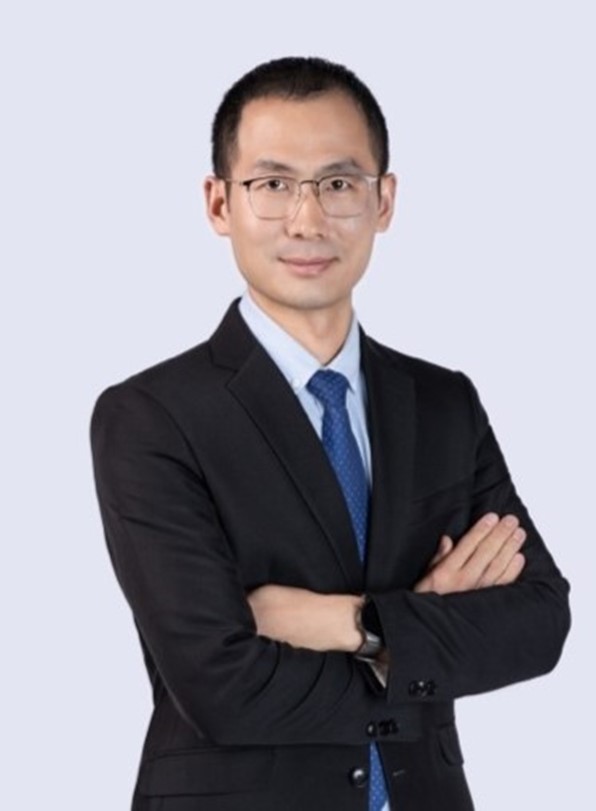导师介绍
夏朋延 研究员

夏朋延 研究员
夏朋延博士2018年12月加入北京大学JDB电子官方网站免疫学系任研究员、博士生导师。2023年获得北京市杰出青年科学基金资助,2019年获得国自然优秀青年基金资助。夏朋延博士获得2023年第五届“北大医学青年科技奖”、2023年北京大学优秀博士学位论文指导教师、2023年北京大学医学部教学优秀奖、2022年北京大学医学部教学成果三等奖、2021年北京大学JDB电子官方网站优秀教师奖、2021年北京市自然科学奖二等奖、2020年霍英东青年教师基金、2020年北京大学绿叶生物医药杰出青年学者奖、2020年北京大学博雅青年学者、2019年北京大学JDB电子官方网站青年教师奖励基金、2019年北京大学JDB电子官方网站三全育人奖、2018年北京市科学技术奖一等奖。参与基金委及科技部重点研发等多个课题项目。
夏朋延博士主要从事固有免疫细胞抗病原微生物感染的分子机制研究,以通讯作者和第一作者在Immunity、Nat Chem Biol、Nat Immunol、Cell、Cell Stem Cell、EMBO J 等杂志上发表论文多篇。发现孤儿受体Nur77在巨噬细胞中高表达且能结合LPS,Nur77与LPS结合后启动了非经典NLRP3炎症小体的活化,相关研究成果以通讯作者身份发表在国际著名免疫学期刊Immunity (2023)杂志上。发现脂代谢酶ATGL能够识别LPS并催化其水解从而避免胞内LPS引起的过度免疫反应,相关成果以通讯作者的身份发表在Nat Chem Biol (2024)杂志上。发现神经肽CGRP在感染状态下能够进入巨噬细胞内部,CGRP通过与NLRP3的LRR区域结合竞争性排斥NEK7从而避免NLRP3的活化,相关成果以通讯作者的身份发表在免疫学杂志Cellular & Molecular Immunology (2023)上。
研究方向:
1.发现新的模式识别受体、鉴定新的特征性病原分子;
2.探索NLRP3炎症小体的活化机制及其在肠炎、皮肤性炎症中的作用。
学生培养:
2016级八年制学生李维涛获得2024年北京大学优秀毕业生、2024年北京大学优秀博士学位论文;2015级八年制学生朱芳蕊获得2021年创新人才奖学金、2022年北京大学三好学生、2022年厚道优秀医学生奖学金、2023年北京市优秀毕业生及北京大学优秀毕业生、2023年北京大学优秀博士学位论文;2015级八年制学生马娟获得2021年国家奖学金、2021年北京大学三好学生。
通讯作者研究论文:
1. Liu Q, Li W, Qian Y, Wang C, Kong C, Li M, Sun L, Sun L, Pang Y, Jiang C, Wang S*, Xia P*. The TET3 inflammasome senses HSV-1 unique long proteins for virus particle budding from the nucleus. Cell Mol Immunol. 2024. 10.1038/s41423-024-01221-2
2. Qian Y, Liu Q, Li W, Wang C, Kong C, Li M, Wang S, Xia P*. A VgrG2b fragment cleaved by caspase-11/4 promotes Pseudomonas aeruginosa infection through suppressing the NLRP3 inflammasome. eLife. 2024. 10.7554/eLife.99939.1
3.Li W, Liu Q, Qian Y, Wang C, Kong C, Sun L, Sun L, Liu H, Zhang Y, Jiang D, Jiang C, Wang S, Xia P*. Adipose triglyceride lipase suppresses non-canonical inflammasome by hydrolyzing LPS. Nat Chem Biol. 2024, 10.1038/ s41589-024-01569-6.
4.Zhu F, Ma J, Li W, Liu Q, Qin X, Qian Y, Wang C, Zhang Y, Li Y, Jiang D, Wang S*, Xia P*. The orphan receptor Nur77 binds cytoplasmic LPS to activate the non-canonical NLRP3 inflammasome. Immunity. 2023; 56: 753-767.
5.Zhang X, Yu D, Wu D, Gao X, Shao F, Zhao M, Wang J, Ma J, Wang W, Qin X, Chen Y*, Xia P*, Wang S*. Tissue-resident Lachnospiraceae family bacteria protect against colorectal carcinogenesis by promoting tumor immune surveillance. Cell Host Microbe. 2023; 31: 418-432.
6.Zhu F, Yu D, Qin X, Qian Y, Ma J, Li W, Liu Q, Wang C, Zhang Y, Li Y, Jiang D, Wang S*, Xia P*. The neuropeptide CGRP enters the macrophage cytosol to suppress the NLRP3 inflammasome during pulmonary infection. Cell Mol Immunol. 2023; 20(3):264-276.
7.Liu Q, Li W, Qian Y, Wang C, Xia P*. AA467197 controls the hyperactivation of the NLRP3 inflammasome during infection. The Innovation Life. 2023; 1(1): 100012.
8.Zhao M, Shao F, Yu D, Zhang J, Liu Z, Ma J, Xia P*, Wang S*. Maturation and specialization of group 2 innate lymphoid cells through the lung-gut axis. Nat Commun. 2022; 13: 7600.
9.Ma J, Zhu F, Zhao M, Shao F, Yu D, Ma J, Zhang X, Li W, Qian Y, Zhang Y, Jiang D, Wang S*, Xia P*. SARS-CoV-2 nucleocapsid suppresses host pyroptosis by blocking Gasdermin D cleavage. EMBO J. 2021; e108249.
受邀请综述及书籍:
1. Xia P, Wang S, Fan Z. DNA sensor cGAS mediates immune recognition. Protein & Cell 2016; 7: 777-791.
2. Xia P, Wang S, Fan Z. Research progress on autophagy and immunity. Chinese Bulletin of Life Sciences 2016; 28: 208-215..
3. Wang S, Xia P, Rehm M, Fan Z. Autophagy and cell reprogramming. Cell. Mol. Life Sci. 2015; 72: 1699-1713.
4. Xia P, Wang S, Fan Z. Chapter 24: Progress on autophagy and immunity. Immunological progress. 2014 (3rd edition); 553-574.
联系方式:
办公地址:科技楼北楼B602-5
Email: xiap@bjmu.edu.cn

